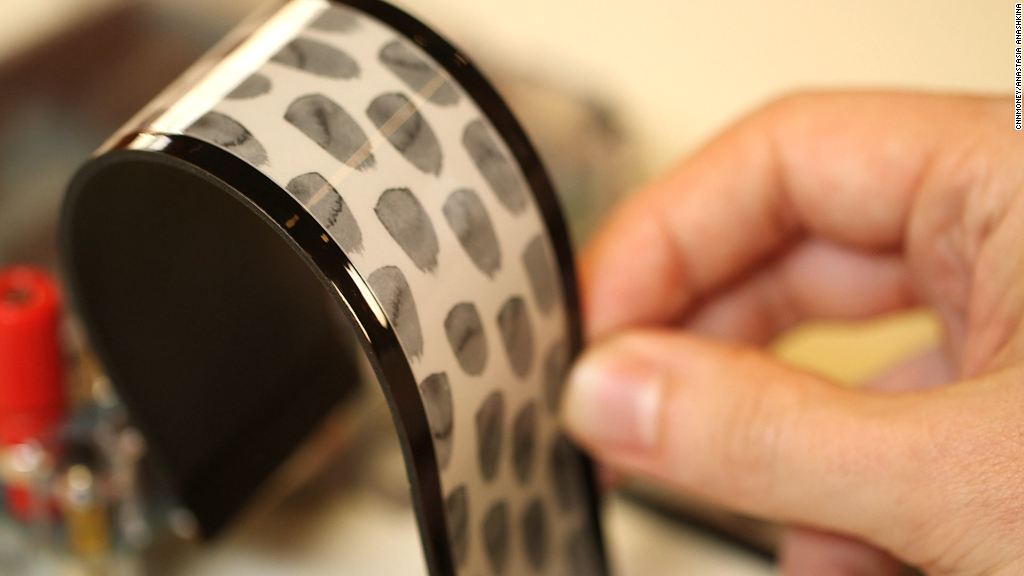
Shortly after the iPhone 6 hit the market last year, Apple had to answer to reports that its new phone was bending by mistake. The fuss soon died down. But technology that allows phones and tablets to bend -- by design -- is taking its first steps into the market.
Chicago startup Polyera has spent 10 years making screens that don't just curve -- it's producing displays that you can twist, bend and roll up like a yoga mat.
Getting the surface screen itself to bend isn't actually the biggest challenge. The hardest part is getting the layers of electronics behind the screen, like the transistors, to contort.
"The majority of electronic devices we surround ourselves with are what I call 'rigid bricks,'" said Polyera's founder and CEO, Phil Inagaki. "And what I thought was that if we could allow these to be softer (and) more flexible, it would allow for all sorts of new experiences and devices to be created."
Makers of wearable devices are the first that Polyera believes will embrace truly bendable technology. To prove its concept, Polyera is developing its own "Wove Band," a long, rectangular display that you can curve around your wrist like a snap bracelet.
The prototype Wove Band feels as much a wearable as it does a fashion statement. The band uses such a low amount of energy that even when you're not interacting with the screen, it can display artsy patterns or designs. The band uses black and white e-ink from Taiwan, as opposed to a colorful display which would consume more power.
Tap the Wove Band with your finger and you can change the screen to display weather forecasts, headlines or email. The company envisions its own system of apps and services, similar to iOS or Android, to provide content for the product, which is slated for release in 2016.
Even if the Wove Band doesn't take off, the technology is promising. The flexible display market is expected to be worth nearly $4 billion by 2020, according to analysis from MarketsandMarkets.
Polyera is one of a wave of startups, universities and even the U.S. military that are investing billions of dollars in the research and development of flexible screens.
Companies like Samsung have already taken the first leap by manufacturing phones with screens that wrap around the device from the front to the sides. LG even has its bendable "Flex" phones, which are nearly curved to the shape of your head.
Apple already received a patent for a "flexible electronic device" earlier this year. The filing showed two dozen drawings of how a device could be warped.
Whatever progress companies like Polyera make, Apple and Samsung will undoubtedly be keeping a close eye out. What was once an accident -- #BendGate -- is likely to someday be a key product feature.

